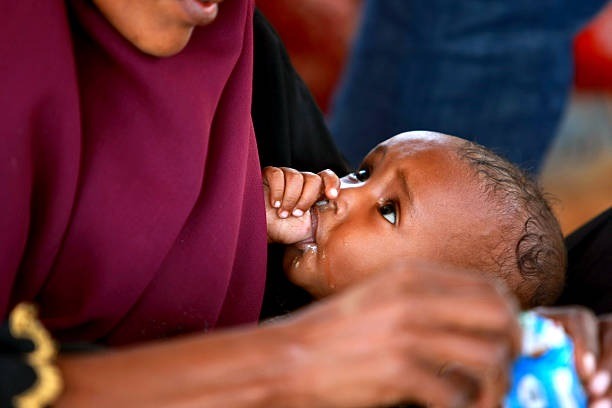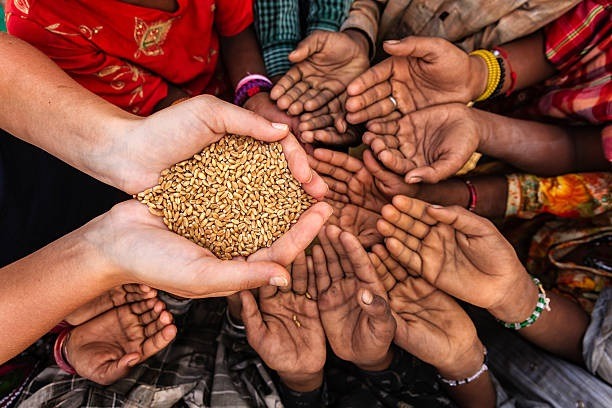Hunger has always been a threat to the existence of the African continent. With combined efforts from governments of various African nations and organizations helping Africa with hunger eradication, results have been looking good. Yet, with one in five Africans still undernourished, including women and children, the journey to ending hunger in Africa is a sad, long road ahead.
There have been lots of conversations on ways to increase food production in Africa, with proactive actions including international NGOs joining efforts to help reduce starvation. Up to 800 million Africans may not see a proper meal to cure their hunger, and this is why more solutions to hunger in Africa are necessary to drive this pandemic into the ground before it devours the entire continent.
We’ve outlined four key solutions to ending hunger in Africa. They include:
Dedicate More Resources
Commendable efforts have been made by parties in releasing resources to the farmers to boost food production. There’s still room for more. Lots of farmers complain of little to no knowledge on how to utilize the materials donated to them to apply on their land.
Many of these farmers are new to the idea of GMO seedlings, nutrients, and other basic supplies. As a result, many of these materials lie to rot, and food production continues to suffer a steady decline. Educating the farmers with direct hands-on training will go a long way to reduce rotting both on the field and in the warehouse.
Asides from training, the provision of materials should be a recurrent investment. Seeds, fertilizers, access to improved and updated modern storage facilities for storage are essential to maintain healthy food production. A lot of farmers are poor with limited access to such facilities. Ensuring access to them will alleviate hunger, as farmers will be able to farm, store and make food readily available for the population. Not just food, but healthy balanced food.
Another major area of focus on resources is finance. There has been an impressive response in investments and donations from the private sector in boosting agriculture. Yet, if it’s not continuous, the entire system will collapse and farmers will return to square one.
Governments of developing countries, donors, private firms, and NGOs should increase investments in agriculture.
Make Hunger Eradication a Continuous Discussion
There are lots of issues in the world today, but hunger is man’s number one enemy. It’s necessary to make agriculture a continuous topic for discussion on both the local and foreign scenes. Making hunger, its effects and ways to bring solutions to hunger in Africa a global discourse will ensure it becomes a priority for organizations.
If CSOs continuously mount pressure on their governments, as well as international agencies to always make hunger eradication a regular topic, agriculture will become a vital component of budgets. Agencies like the Food and Agriculture Organisation (FAO) of the United Nations are a fruit of the continuous pressure mounted by groups on the United Nations to make agriculture a priority.
A dedicated Inter-African agency funded by governments of African countries can become essential to hunger eradication, but this will come from making agriculture a continuous discussion in the African Union.
Empower the Countries
Lots of improvement is needed towards the empowerment of third-world countries to enable them to boost their agricultural programs. These countries are always in constant need of support to help them.
Each country has its weaknesses and strengths, different soil terrains with crops that can thrive in their territory. Developing and sustaining programs for such programs requires so much, including technical support, manpower, and financial aid in the form of grants.
Many developing countries need third parties to invest in their agricultural programs to help them become sustainable and sufficient and also provide aid to the farmers to increase production.
Increase Smart Partnerships
To reduce the menace of hunger, especially among starving children in Africa, there needs to be a synergy of partnerships that can foster an exchange of relevant information and resources.
Bringing an end to the hunger pandemic on the continental stage requires lots of work which shouldn’t be left alone to one party. As stated, both the scientific society, NGOs, Civil Society Organizations, farmers, government at all levels, and the African Union are needed if the war against hunger and its effects will be won.
Starting from government at the local level, which is closer to the farmers, there need to be strategic partnerships that allow them to bring the needs of the farmers to the table, private firms willing to listen and provide resources, and the government at both the national and international levels to ensure these meetings happen.
Many of these partnerships are already happening. For instance, Food for Life Global partners with governments of third-world nations, and collaborates to find ways to take action against hunger and bring it to a non-threatening level. You can find out about their activities in the African continent via https://ffl.org/15121/child-hunger-africa/.
Food in Africa and Future Prospects
With an increase in climate change causing drought and insecurity in the continent, many African countries are finding it difficult to keep up with accepted standards for nutritional requirements for their teeming population. This is coupled with the health and economic impacts of the COVID-19 pandemic, driving more children and women especially into extreme hunger, which kills many daily.
We believe that continuous donations, fruitful partnerships, as well as support to governments in the continent will go a long way in reducing child hunger. The solutions to hunger in Africa are always open to more research, with analysts predicting that the future of the young child in Africa is no longer guaranteed, not because of conflicts in the region or disease, but because of hunger.
As seen, more partnerships in the area of financing, technical knowledge, especially in fertilizer application, use of genetically modified seedlings, and how to store produce using modern food storage facilities and systems will push up produce, reduce pricing and make nutrition available to everybody.
Africa has the potential to reduce the food crisis in its region to the barest minimum. This success will come from the combined efforts of all concerned parties to give everyone a chance at life.


